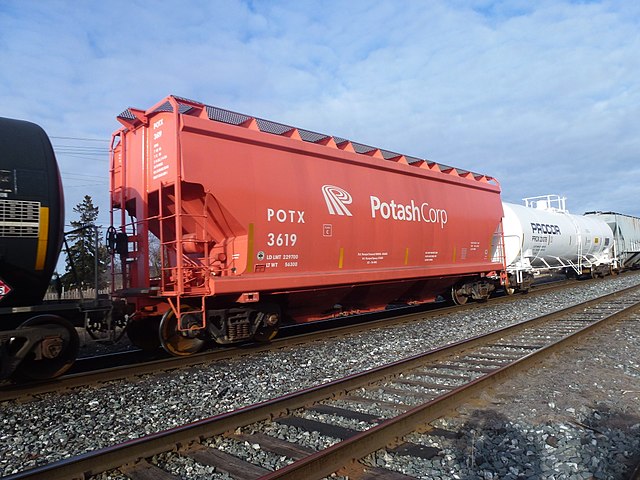Sodium carbonate is the inorganic compound with the formula Na2CO3 and its various hydrates. All forms are white, odourless, water-soluble salts that yield alkaline solutions in water. Historically, it was extracted from the ashes of plants grown in sodium-rich soils, and because the ashes of these sodium-rich plants were noticeably different from ashes of wood, sodium carbonate became known as "soda ash". It is produced in large quantities from sodium chloride and limestone by the Solvay process, as well as by carbonating sodium hydroxide which is made using the Chlor-alkali process.
Sodium carbonate
Potash includes various mined and manufactured salts that contain potassium in water-soluble form. The name derives from pot ash, plant ashes or wood ash soaked in water in a pot, the primary means of manufacturing potash before the Industrial Era. The word potassium is derived from potash.
Polycrystalline potash, with a U.S. penny for reference. (The coin is 19 mm (0.75 in) in diameter and copper in color.)
The first U.S. patent was issued for an improvement "in the making of Pot ash and Pearl ash by a new Apparatus and Process"; it was signed by then President George Washington.
A covered hopper car in a Canadian train for shipping potash by rail.
Global imports/exports of potash in 1937





